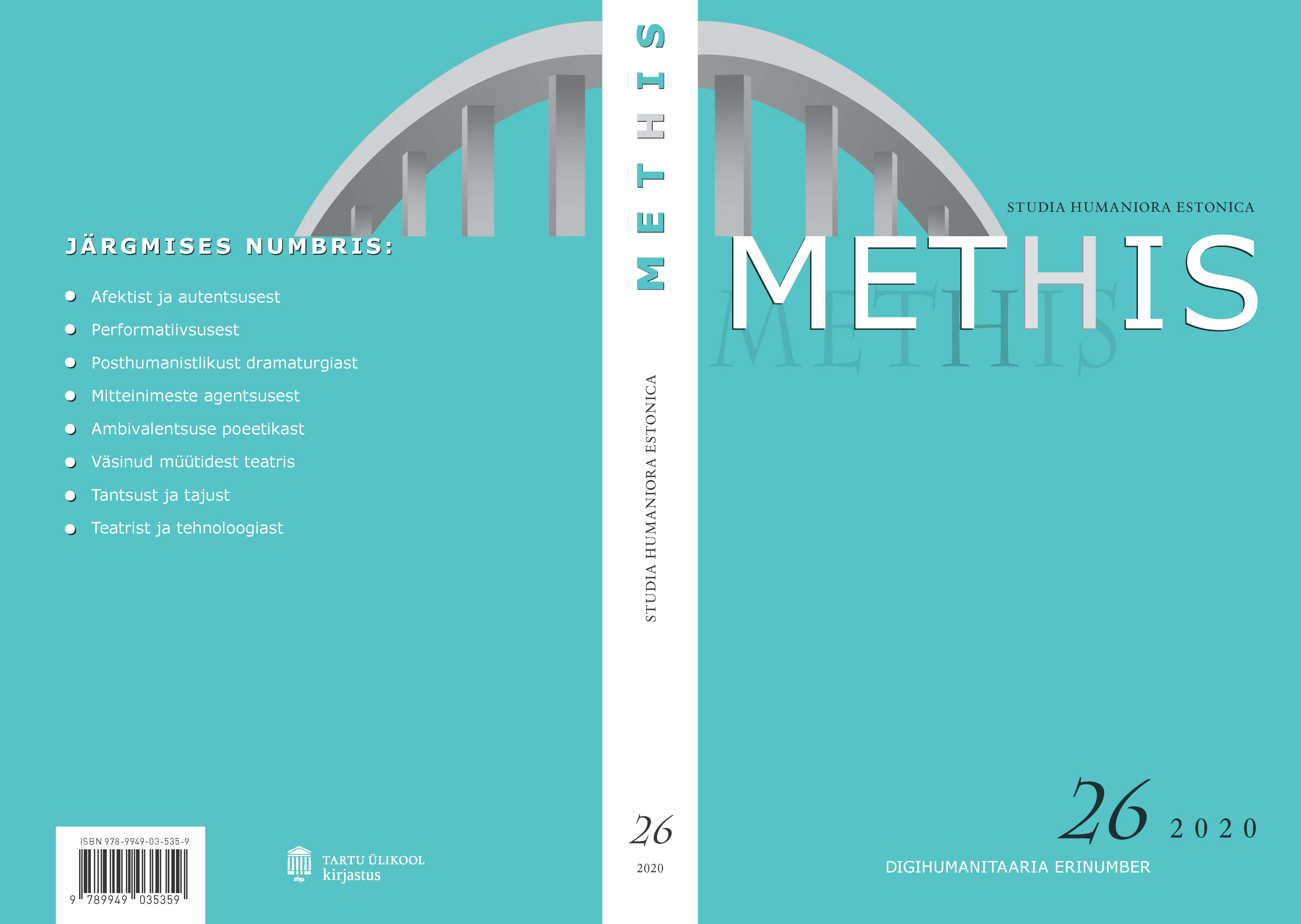Jaan Bergmanni pilaeepos „Jaaniida“: tekst, kontekst ja intertekst / Jaan Bergmann’s mock-epic Jaaniida: text, context and intertext
DOI:
https://doi.org/10.7592/methis.v21i26.16921Abstract
Mock-epics were first created already in the antiquity and the most famous of them, the Batrachomyomachia, was translated into Estonian already in 1875 by Jaan Bergmann; it was also the first full translation of an ancient epic poem into Estonian. However, until now, no Estonian original mock-epics were known and this genre was presumed to have evolved in Estonian literature only in the 20th century, mostly used in parodies of the national epic, the Kalevipoeg.
In this issue, we introduce a new archival find from Jaan Bergmann’s manuscript poetry book. We discovered that, having probably been inspired by the Batrachomyomachia, but perhaps also by Nikolay Osipov’s Eneida (1791), Jaan Bergmann had created his own mock-heroic poem Jaaniida (1875). It is a multidimensional and poetically rich poem, interweaving different verse cultures and different eras. On the one hand, its analysis reveals clear influences of the Odyssey: there are parallels with the portrayal of the main hero, images and the plot, as well as with the Homeric epic techniques (for example, both epics begin with the prooemium, which contains an invocation). But in terms of poetic devices and versification, Jaaniida draws on Estonian folk songs, using the folk meter, plenty of alliteration and assonance as well as parallelism, and imitating their morphology and vocabulary. The storyline of the poem features events that appear to have happened only recently before the writing of the text (most probably in 1866–1875): the transition from villeinage to money rent and the cases of corruption among local administrators. Against this background, Bergmann satirically pictures the rise of an individual and his later downfall caused by his weaknesses and vices.


